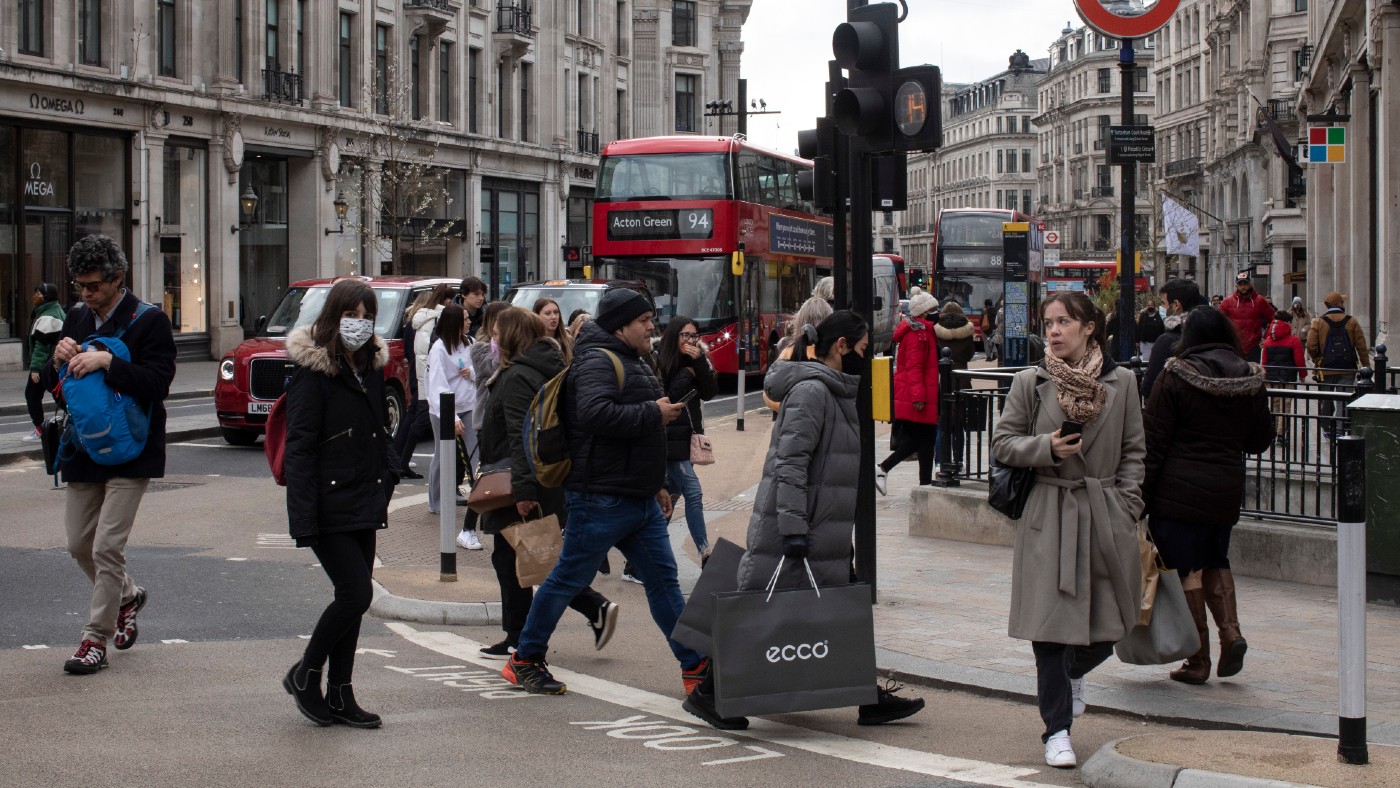The great reopening
Spirits are high as consumers are unleashed, but recovery depends on other factors too

A free daily email with the biggest news stories of the day – and the best features from TheWeek.com
You are now subscribed
Your newsletter sign-up was successful
Forget the start of grouse shooting in August; for Britain’s small businesses, the “Glorious Twelfth” arrived early on 12 April with the long-anticipated reopening of pubs, shops, salons and restaurants, said Jayna Rana on ThisIsMoney.co.uk. The mood was upbeat. The Federation of Small Businesses reported that confidence is at its highest level since 2014, thanks to the perceived “certainty” provided by the Government’s roadmap. After three months of “being deprived of a retail fix”, shoppers were out in force, said Larry Elliott in The Guardian. Economists say it’s “unwise to read too much into one month’s data”, let alone “one day’s footfall”, but the first signs were encouraging. Nonetheless, footfall was still down on the same day two years ago – “a long-lost time of innocence when pandemics, mass vaccination programmes and needing face masks to enter shops were the stuff of sci-fi movies”.
The pandemic-induced gaps on the high street told their own story, said The Observer. Among them are the entire Arcadia empire, Oasis and Warehouse, Cath Kidston, Thorntons and several John Lewis outlets. Poignantly, the collapsed department store chain Debenhams reopened its doors, “but only for a closing-down sale”. A similar picture looked to be forming in the hospitality trade, said Simon Read on BBC Business. Only two in five pubs in England reopened on Monday. “No pub is expecting to profit from reopening outdoors, and many will make a loss,” noted Emma McClarkin of the British Beer & Pub Association. And some 2,500 pubs are estimated to have closed for good in 2020.
Many consumer-facing businesses are banking on a “spend, spend, spend” mentality as Britons unleash their lockdown savings, said Russell Lynch in The Daily Telegraph. The “Eeyorish counterpoint” to that is grounded in behavioural economics: “we mentally create different ‘pots’ of money” and this determines our willingness to spend. “My suspicion is that savings will be treated as assets and deployed cautiously.” For my money, “a consumer upturn is not in doubt, barring unexpected Covid developments”, said David Smith in The Times. But trade and investment are also “essential ingredients for a balanced economic recovery” and recovery there is much more doubtful. With EU and world trade still depressed, “forecasters are unanimous” in expecting UK net trade (exports minus imports) to deduct from this year’s GDP growth. And the Resolution Foundation warns against expecting too much of business investment, as so many companies “have taken on too much debt”. British consumers are “a tribe you write off at your peril”, but they cannot spend us out of this pandemic on their own.
The Week
Escape your echo chamber. Get the facts behind the news, plus analysis from multiple perspectives.

Sign up for The Week's Free Newsletters
From our morning news briefing to a weekly Good News Newsletter, get the best of The Week delivered directly to your inbox.
From our morning news briefing to a weekly Good News Newsletter, get the best of The Week delivered directly to your inbox.
A free daily email with the biggest news stories of the day – and the best features from TheWeek.com
-
 Political cartoons for February 15
Political cartoons for February 15Cartoons Sunday's political cartoons include political ventriloquism, Europe in the middle, and more
-
 The broken water companies failing England and Wales
The broken water companies failing England and WalesExplainer With rising bills, deteriorating river health and a lack of investment, regulators face an uphill battle to stabilise the industry
-
 A thrilling foodie city in northern Japan
A thrilling foodie city in northern JapanThe Week Recommends The food scene here is ‘unspoilt’ and ‘fun’